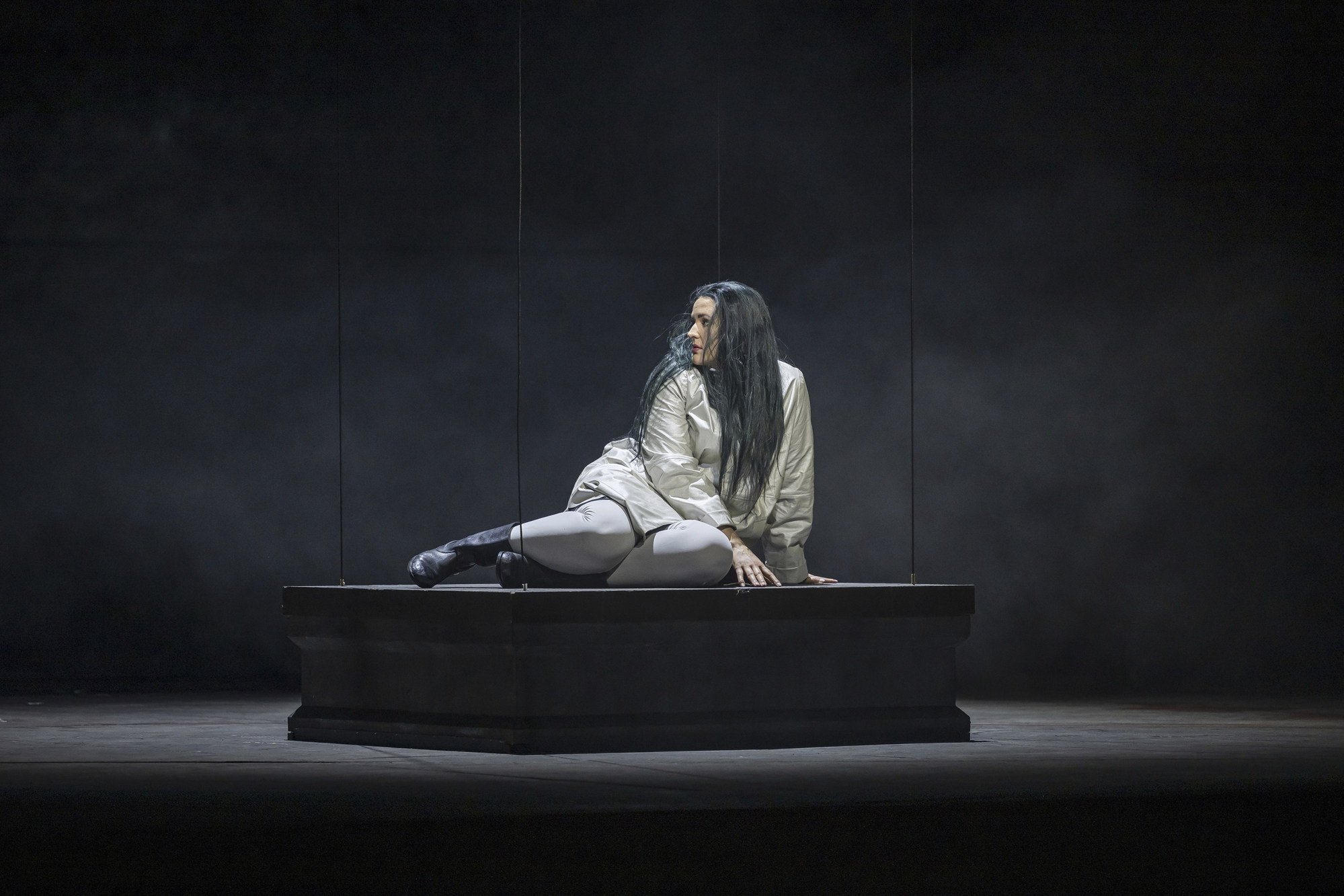
Classical music’s Taylor Swift, Lise Davidsen, soprano singing Salome at Opéra Bastille, wows Paris too
- Soprano Lise Davidsen, fresh from her debut lead performance in Strauss’ Salome at Paris Opéra Bastille, talks about her life on and off stage
- Even though professionals in the industry have nothing but praise for the quality of her voice, Davidsen admits to trepidation about each new role
Taylor Swift isn’t the only singer fans are flocking to Paris to hear.
Lise Davidsen has become classical music’s biggest draw, attracting crowds to the Paris Opéra Bastille for her first performances in the title role of Strauss’ Salome during the same week Swift filled La Défense Arena across town for four nights for the start of her Eras Tour’s European leg.
“It’s a voice of the century,” says American director Lydia Steier, who staged the sex- and alcohol-fuelled Salome. “It’s an insane intensity acoustically. I think it's electric.”
Andreas Homoki, director general of the Zurich Opera, gave Davidsen her first major role in 2016 as Agathe in Weber’s Der Freischütz.
“Somebody said she’s the new Nina Stemme. I disagree. She’s the new Nilsson,” he says in a comparison with Birgit Nilsson, regarded as one of the greatest Wagnerian sopranos of the 20th century.
Davidsen is in the middle of a landmark season that included her first stage performances in the title role of Janáček’s Jenufa in Chicago last November and her debut in the role of Leonora in the Metropolitan Opera’s new production of Verdi’s La forza del destino in February.
“I feel very, very lucky that I have this job and that I get to do this as a career,” she says. “It’s an unbelievably privileged job, but it’s also an unbelievably hard job.
“I think it’s important to remember that it’s a gift to be able to do this, because in the hard days, I wonder if I should just quit and never sing again. But then when you get to the end of a run or show or good rehearsal, you think what a gift it is to do this.”
She makes it sound easy. She makes it sound effortless. It’s big, but she never shouts. It’s got a beauty to it
Davidsen starts this Salome in a back room of the brutalist set where Herod’s orgy is taking place, wearing a white raincoat, her black hair stringy in a Goth look. She wanders onto a staircase as three attendants in yellow hazmat suits dispose of bodies.
Steier replaces the dance of the seven veils with a gang rape. In another iconic scene, a Salome body double holds the severed head of Jochanaan (John the Baptist), while Davidsen sings the final portion of her 15-minute solo in a cage.
She is with Johan Reuter, who portrayed Jochanaan, and they rise toward the rafters in an apparent hallucination before Herod orders her death.

The audience whooped after the final note of Sunday’s matinee, the second of seven performances.
“She makes it sound easy. She makes it sound effortless,” conductor Mark Wigglesworth says of her voice. “It’s big, but she never shouts. It’s got a beauty to it. That means you’re not conscious of quantity, you’re just focused on the quality.”
Davidsen calls Steier’s controversial staging “unbelievably new and modern”.
“As long as it makes sense, as long as there is reason, I really enjoy doing it,” she says.
At the Met on February 26, Davidsen was so overwhelmed by the audience response after her big fourth-act aria, Pace, pace, mio dio! that she broke character, bowing her head and putting a hand over her heart.
“Relief that it went well and I was happy about it,” she explained a few days later.
Recently, Davidsen has been home only for brief stretches between singing engagements. She and her fiancé have a house in London and are building one in Norway.
On the days of performances, Davidsen has a mundane routine that includes walks, laundry, naps and yoga. She gets to the opera house about 2½ hours before curtain up to warm up and go for hair and make-up.
Nervous energy on opening nights does not dissipate until the wee hours.
“I pass out in a way rather than sort of fall asleep properly,” she says.
Now 37, the 1.88-metre (6ft 2in) Norwegian debuted at the Vienna State Opera in 2017 in the title role of Strauss’ Ariadne auf Naxos, at London’s Royal Opera in 2018 as Freia in Wagner’s Das Rheingold, at the Bayreuth Festival in 2019 as Elisabeth in Wagner’s Tannhäuser and at the Met in 2019 as Lisa in Tchaikovsky’s Pique Dame (The Queen of Spades).
Even with a string of accolades, Davidsen approaches each role with trepidation.
“Am I good enough?” she says. “It surprises me every time how nervous I get.”
She is to sing Act 2 of Wagner’s Tristan und Isolde for the first time in concert with conductor Simon Rattle and tenor Stuart Skelton with the Bavarian Radio Symphony Orchestra in concert in November in Munich, then sings Tosca at the Met starting later that month and Leonore in Beethoven’s Fidelio there opening in March 2025.
“I really wanted to do the Fidelio here and, of course, when I was asked to do Tosca that was a very clear yes for me,” she says in New York before heading to Europe.
Opera aficionados await her first full Isolde and Brünnhilde.
“The Verdi has now been a very big thing for me to get to do Don Carlo and then Forza and I would like to do a Un Ballo in Maschera,” she says. “And then of course Tosca, it’s a really big thing for me next season.
“And then ever further away, maybe the bigger Wagner roles. I hope that the Verdi, Puccini, Strauss world can be my plan for some more years.”

